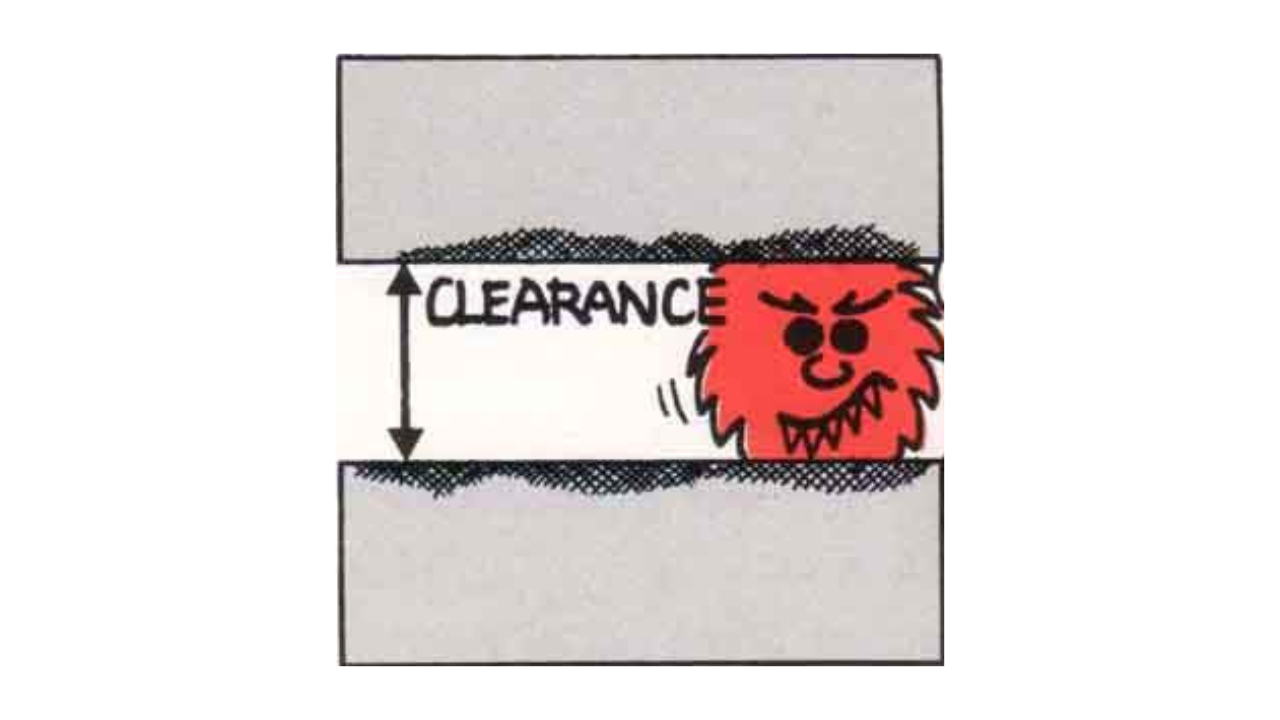Developing a Root Cause Analysis Work Process – Part 3
Rick Kalinauskas
Click to view each part of this series: 1 : 2 : 3
RCA Training and Skills Development
With goals and roles defined, our next RCA work process requirement is insuring that the individuals conducting the RCA activities have the necessary skills and attributes for performing their responsibilities. There are important considerations in developing training plans for Root Cause Analysis to insure success. Following are a few key points to consider when developing RCA training plans for the responsible individuals:
- It is not a skill that has been taught in engineering curriculums by most universities and colleges. Therefore, it must be developed as a new skill and discipline within the organization. This means that there will be more than multi-day training sessions required for individuals to attain a level of proficiency and expertise in Root Cause Analysis.
- Determining strategic areas for improvement from data and historical information is a critical skill to insure that the Root Cause Analysis activities are focused. This includes developing and presenting trend graphics and information related to loss areas and failures.
- Investigation skills in failure cause determination are required to perform RCA tasks. An RCA analyst role is similar to a detective and requires that the individuals understand how to obtain information and evidence during investigations. Analysts need to understand how to structure problem solving in cause diagrams or models to insure that a methodical, disciplined approach is used to identify all contributing root causes.
- Identifying component failure mechanisms is required to insure that analysts are capable of understanding the forces and mechanisms that cause physical components to fail in service.
- Identifying human error deficiencies is a vital requirement for RCA analysts. All problems have behavioral aspects associated with them that need to be understood and corrected as part of Root Cause Analysis.
- Communicating RCA progress and findings. Analysts are responsible for periodic reporting on progress in RCA activities and identification of barriers to implementing corrective action plans. Skills in reporting and presenting are required.
- Developing corrective action recommendations. The RCA analyst is responsible for insuring that all root causes are addressed through appropriate corrective action plans. There is no value in a RCA work process and activities if corrective action is not taken to eliminate the identified root causes.
Selecting Potential RCA Analyst Candidates
It is quite optimistic to assume that group attendance at multiday training sessions will provide enough exposure to RCA principles and methodologies to build true competencies and develop RCA work processes. In reality, the timeline to develop these skills is dependent on many organizational variables and personal talents.
With all due respect to training organizations, it is our experience that not all employees are suited to be a Root Cause Analyst, and that training large groups of employees is generally not an effective way to develop an RCA effort. I recognize that this is a current model for developing RCA skills in many organizations, but experience has shown us that very few employees who receive RCA training actually end up using it as part of their job duties. A great deal of this is associated with the goal and role alignment issues we have reviewed, and is not a fault of the quality of the training received, which is generally excellent and very comprehensive.
We have seen that it is more effective to focus training efforts on select individuals or a group of individuals who are particularly suited for learning and accepting the responsibilities of an RCA analyst. We have observed that these are individuals with a talent for problem solving and are ideal candidates for training to become RCA subject matter experts. In our view, there appears to be a mix of personality, curiosity, persistence, patience and human instinct that some individuals possess that makes them suited for RCA.
Contrary to most thinking, individuals with detailed technical knowledge of their environments usually do not do well in RCA analyst roles. In many cases, their lack of objectivity and tendency to use their experience as the sole basis of their analysis tasks, rather than a methodical, structured approach that considers all potential possibilities, makes their efforts ineffective.
In addition to the formal training provided, we believe that an RCA work process requires an extended period of support and mentoring during its development period to be successful. After the training has been completed, RCA advocates require time to apply their new skills in their work environments, working with a skilled RCA resource that continues their learning process and reinforces their ability to perform analysis activities.
Additionally, employees participating in RCA will require a management support and interaction process that is not part of tactical business discussions and meeting agendas. This interaction process is an important requirement in the development of an RCA work process.
“Care & Feeding“
Raymond L. Thomas, a mill manager with International Paper, sponsored the development of a successful strategic work process for reliability improvement in 1995. He coined the phase “care and feeding” when referring to the management support activities he conducted to insure that his strategic problem solving resources were given appropriate time and attention for their activities.
In addition to weekly meetings with the group’s leader, Ray sponsored a quarterly lunch meeting where the strategic reliability improvement group presented trend graphics defining their opportunities and reviewed their progress in analysis activity and corrective actions. As part of the process, feedback was given, and a dialogue was held to review any barriers to continued progress. By doing this, he insured that his strategic effort was part of the agenda for his mill’s business plan and management process, and its resources were engaged.
This concept is a vital element of a RCA work process. Once commissioned, this effort will require that facility managers commit to the appropriate time and attention needed to sustain and encourage the activities for RCA.
An important aspect of this interaction is the authority level participating in this RCA progress review process. In order to insure that analysis findings result in prompt corrective action, management must understand the issues of the analysis and proposed improvement plan. By reviewing the defined objectives and ongoing progress of problem solving activities, management is a participant in the RCA process, and is generally more committed to supporting the implementation of cost-effective improvement plans as they are developed.
Maintaining a focus on strategic business objectives for reliability and quality improvement will be a critically important management responsibility as the RCA activity develops and matures. This will help to insure that resources are not redirected over time towards tactical responsibilities that do not address major business objectives and deliver improvements.
Summary
Root Cause Analysis represents one of the greatest challenges in reliability program development, requiring a broad understanding of management processes, structured problem solving and behavior.
Developing a Root Cause Analysis work process will require effort and persistence as well as new thinking about organizational structure and resource priorities.
The potential improvements from developing an effective Root Cause Analysis work process are significant. Most manufacturing processes have opportunities for improvement and cost reduction that have not been obtainable with current efforts. In some cases, these opportunities could represent competitive advantages in manufacturing strategies and processes.
Examine your performance and review your potential. You can reach this potential in your organization by Developing a Root Cause Analysis Work Process.
Root Cause Analysis Training & Consulting Sponsor
Click to view each part of this series: 1 : 2 : 3
Rick Kalinauskas, CMRP, is President of Reliability Support Services, an educational consulting firm focused on helping organizations develop their Root Cause Analysis capabilities for achieving cost reductions and strategic improvements. He is an ardent proponent of RCA application and is a specialist in performing Root Cause Analysis for clients in manufacturing and industry.
Rick has over 20 years experience in the application of structured problem solving methodologies as part of his 30 years of involvement in manufacturing. He has a particular focus on the behavioral and work process aspects of reliability improvement. Rick has served in several maintenance and operations management roles with Nestle USA, as reliability engineering manager for International Paper, as an Asset Care Program Manager for Coors Brewing Co., and as a corporate reliability specialist in Root Cause Analysis for Halliburton KBR. He has worked with several clients in the oil and gas and pharmaceutical industries as well.
Rick resides in Chesapeake, Virginia with his wife Mary. He can be contacted at 757-646-4128 or email: [email protected]
Related Articles
Analyzing Semiconductor Failure

Improvement: What Comes First?

An Integrated Process for System Maintenance, Fault Diagnosis and Support

Anatomy of a Boiler Failure—A Different Perspective

Anatomy of a Hydraulic Pump Failure

Are We Willing to Hear What “Failure” Has to Say?




